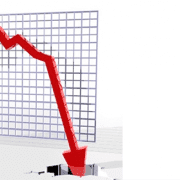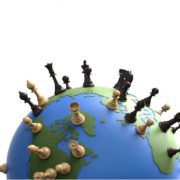New priorities in an upended world
By Alexander Corne
The world has been turned upside down and had the last few coins shaken out of its pants, by the COVID-19 virus.
Aside from the human suffering, the economic shellacking, and the social dislocation, or possibly as a result of it, in most countries, we have actually wound the clock back almost a century to a time when value was placed on learning, knowledge, concern for others and a degree of humility.
In other words, the Me! Me! Me! Instant Gratification Generation has been plundered, punctured and punted into touch.
Who would you rather pay a weekly salary of $850,000 to now? A young man who is good at kicking a ball into a net or over sticks, who can run for 90 minutes without getting puffed out, or a specialist researcher identifying and formulating a vaccine to cure the virus? Just think about that for a minute.
In every western culture, the deity of sport has been deposed. Almost soundlessly. Practically effortlessly. Religious extremists of every stripe have joined the sports folk, kicked unceremoniously to the kerb. No-one on a ventilator has been saved by a Shaman of any colour.
And in the epicentre of world entertainment, Las Vegas is shut and Hollywood’s great names are unmasked as nothing more than a sideshow when the matters are life-and-death.
It seems we don’t need Hollywood’s uber-liberal mavens to entertain us when the SHTF.
Scale up a few notches to bear witness to globalism melting faster than the polar icecaps. The splintering of the UK from the EU has raced to become a chasm separating the EU’s rich and sophisticated northern kingdoms from their poverty-stricken southern neighbours.
Borders are back in fashion, and EU members were not even up to sharing masks or gloves. Reckon they’ll pony up their armed forces if one of their number gets eaten alive by the hungry bear to the east?
The irony of the entirety of Europe being dependent on PPE being flown in from China appears to have been lost on folks, from national government and EU ministers down.
Hopefully Australia will be a bit more savvy, in its post-cataclysmic reconstructionist phase, and finally realise that it must not be wholly dependent on China to make everything it needs in the pursuit of life, love and happiness. Just as we can’t rely on the US to warehouse our liquid fossil fuel energy security stockpile, offshore and across the Pacific.
For fun, why not extrapolate the events of the past 8 weeks and just imagine how vulnerable we would all be this time next year, if a black hatted player (pick one: there is no shortage of unprincipled states and terrorist organisations) decided to let loose a new and similarly murderous concoction at the Olympics or World Cup soccer finals.
The ‘dry run’ when Bergamo played Valencia certainly shows how effective a sports crowd is at spreading a virus across two nations, without even trying. Ramp it up a few notches and you have World War III declared, run and won without a shot being fired.
So the take-out is that we all, individuals and businesses, must lobby our elected representatives to ensure that we are better prepared next time. For example, the last pandemic drill run in Australia was in 2008. We must tell our ‘leaders’ not only to gameplay the scenarios, but actively prepare, stockpile and train. Because if they don’t, the wilderness beckons.
RMK+A is highly experienced in government relations and in assisting businesses and organisations in engagement with policy makers.




